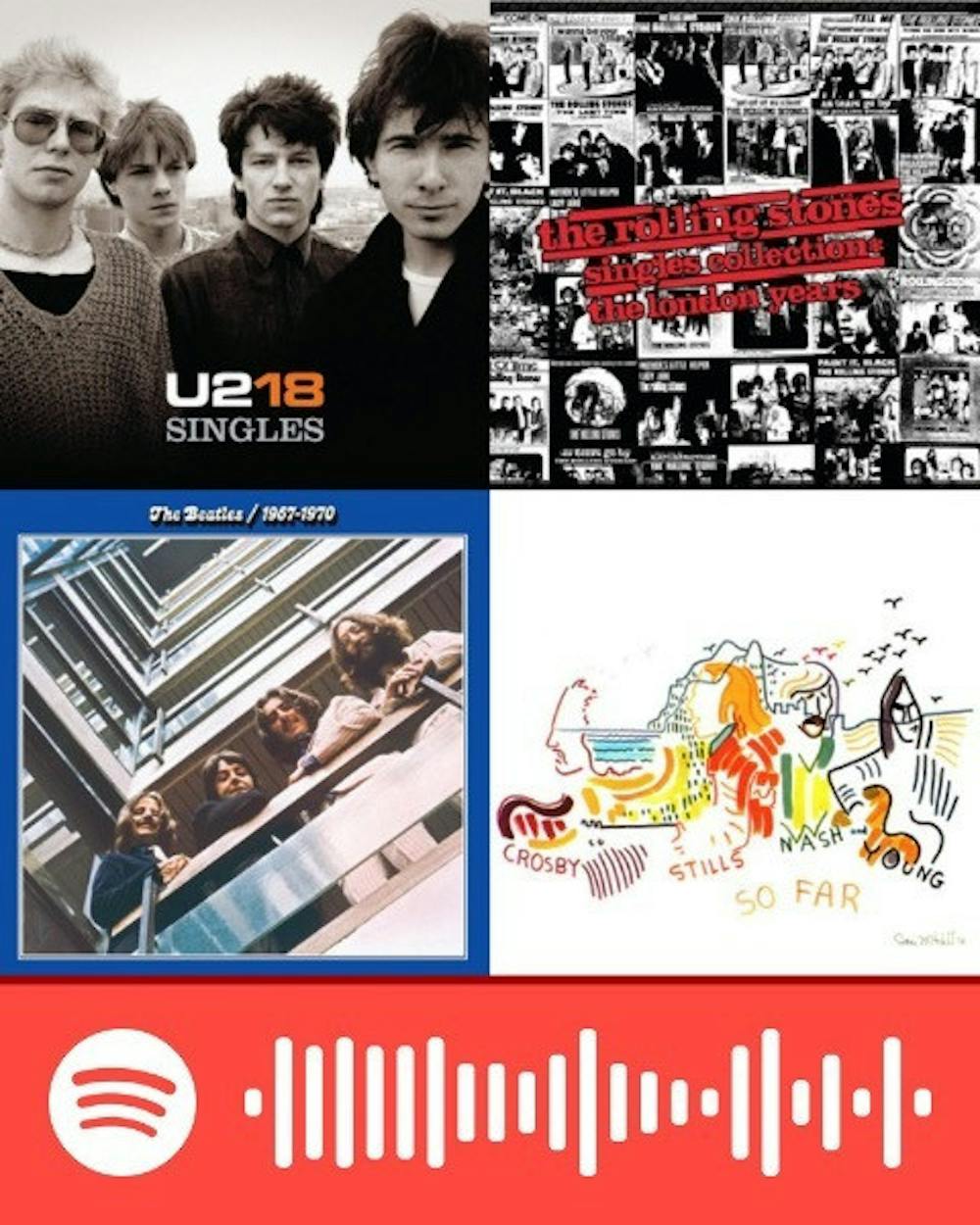When looking over music released in the past century, there are certain moments in modern history that had such a big impact on the world that individual artists and bands felt compelled to use their musical gifts to comment on it. From protesting the war to slandering presidents, music has been influenced by politics for a long time.
In doing my own research about songs that fall into this category, I wasn’t surprised to find how many were about war, but more specifically the Vietnam War. Well known tunes like “Fortunate Son” by Creedence Clearwater Revival, “For What It’s Worth” by Buffalo Springfield, “Give Peace a Chance” by Plastic Ono Band and “The Unknown Soldier” by The Doors all have their own expressions of disdain toward the Vietnam War. They simultaneously created an outlet for their own anger and provided validation for anyone who was also displeased with the state of the world.
Themes from the Civil Rights Movement are found in a lot of 1960’s music. In a statement for the Berlin Jazz Festival in 1964, Martin Luther King Jr. commented on how music affects our lives.
“God has wrought many things out of oppression,” he said. “He has endowed his creatures with the capacity to create, and from this capacity has flowed the sweet songs of sorrow and joy that have allowed man to cope with his environment and many different situations.”
At the March on Washington in 1963, Harry Belafonte, Mahalia Jackson, Peter, Paul and Mary, Marian Anderson, Joan Baez and Bob Dylan were among those who gave live performances. All of them were activists in their own right and their music reflected that. From Jackson’s “We Shall Overcome” to Dylan’s “Blowin’ in the Wind,” the need for the songs of the Civil Rights Movement has bled into the need for them in today’s Black Lives Matter movement.
Kendrick Lamar’s “Alright,“ Childish Gambino’s “This is America,“ Lauryn Hill’s “Black Rage” and Janelle Monae’s “Hell You Talmbout” are among newer songs that have become anthems of the Black Lives Matter movement. They are still among long time freedom songs like “A Change is Gonna Come” by Sam Cooke, “Strange Fruit” by Billie Holiday and “Mississippi Goddam” by Nina Simone. Songs new and old have been added to the collection of the music people march to at Black Lives Matter protests, but it’s concerning that the songs of the marches of the ‘60’s are still being played during the fight for equality 40 years later.
There’s something to be said about songs claimed by the LGBTQ+ community like, “It’s Raining Men” by The Weather Girls, “Dancing on My Own” by Robyn, “Born this Way” by Lady Gaga and “Don’t Stop Me Now” by Queen. They are all favorites of queer-identifying music fans and are among many songs played at Pride events, protests and marches. Queer people have had a huge role in shaping the music industry as far back as the emergence of the blues in the late 19th and early 20th centuries. Black people are rightly linked to the era but the genre also created space for queer people, more specifically queer women. Bessie Smith’s “Empress of the Blues,” Ma Rainey’s “Prove It On Me Blues” and Lucille Bogan’s “B.D. Woman’s Blues” are all examples of songs that blatantly expressed same-sex desire.
Another example of the impact of the queer community is in the music of the 1970’s and 1980’s. It emerged the way it did because of increased visibility of fluidity with gender and sexuality. Artists like Grace Jones, Freddie Mercury, David Bowie and Prince were then able to exist, break boundaries and create safe spaces in the way they did.
The explanations of how music has been influenced by political and social issues in this column do not cover all of the bases of the subject. There is so much more to be said about how music has evolved, and the political and social changes that took place because of women, Black people, the LGBTQ+ community, Latinx people and Asian people, etc. Music reflects their impact because of the musicians that have chosen to document the events of the world through their art form.
Tate Raub is a sophomore studying strategic communication at Ohio University. Please note that the views and opinions of the columnists do not reflect those of The Post. Want to talk more about it? Let Tate know by tweeting her @tatertot1310.
Opinion Editor






